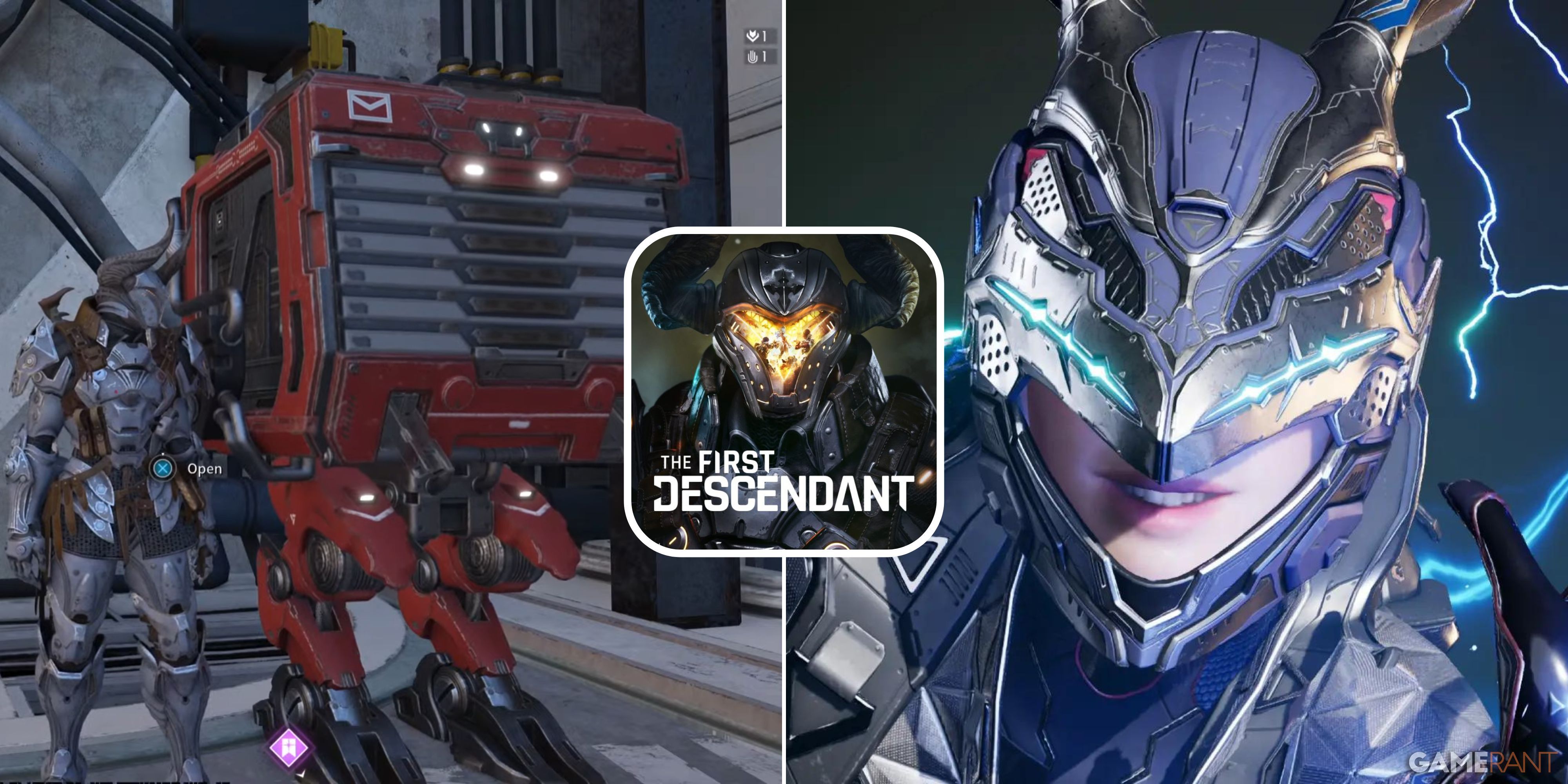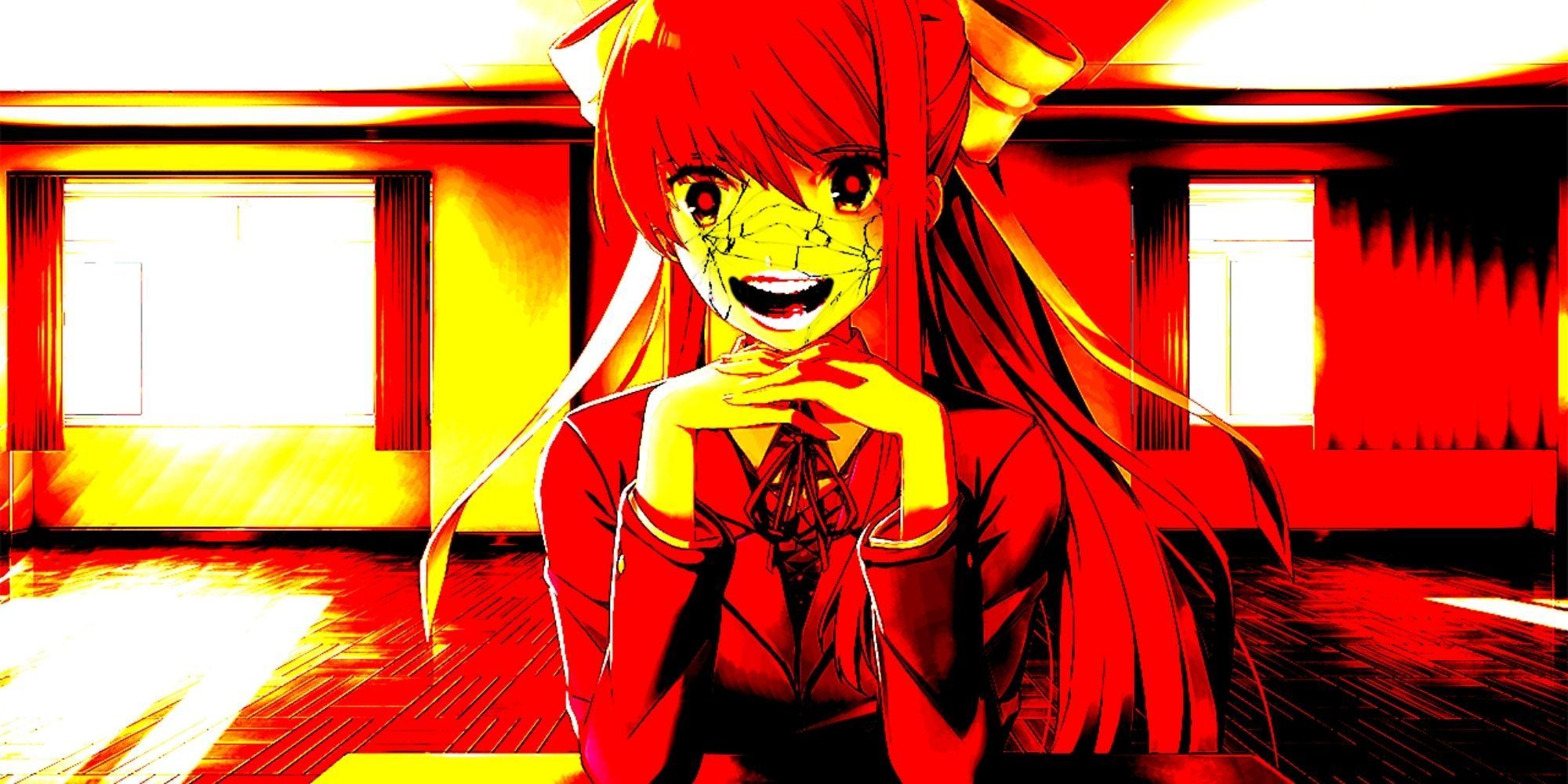Highlights
- The portrayal of the Yandere trope through Monika in Doki Doki Literature Club runs the risk of normalizing toxic behavior.
- Monika's obsession in the game, which includes accessing the player's computer and personal information, is meant to be creepy and dangerous, but can also be appealing and intriguing to some fans.
- While fans may like Monika as a fictional character, it's important to acknowledge the dangers of obsessive behavior.
When Doki Doki Literature Club first dropped, players were confused by its cutesy appearance and how it contradicted its psychological horror tag. Booting up the game, however, brought players all the answers needed. Doki Doki Literature Club's Monika, the game's main antagonist, goes through the player's computer files and deletes the other girls to be closer to the player. She aims to trap the player with her for all eternity in the name of "love". But that isn't love.
Confusing obsessive behaviors with love isn't something people want to do. DDLC's portrayal of the Yandere trope through Monika, though well done, runs the risk of normalizing this toxic behavior. A Yandere character is one who will do anything to get closer to their loved one, often to a brutal end. They'll appear sweet and loving before revealing how crazy and deranged they truly are. This is exactly how Monika acts; she's more than happy to see the player enter the club, but she can't stand not being a romantic option.
Monika's Obsession in Doki Doki Literature Club
Monika's ability to get into the player's computer and DDLC's game files to bring the two of them closer together naturally shocked and scared many. Being so obsessive, enough to break out of the game and directly view the player's personal information, is terrifying. But of course, this was also meant to be the appeal to Monika. She's designed to be this creepy and dangerous. That's her selling point, that's what people are supposed to like about her—and that's her downfall.
The Real Consequences of Obsession
Selling a character based on their darkest attributes can only come around to bite one in the butt. This inherently normalizes and encourages this behavior and runs the risk of having people look for this kind of "dedication" in their real relationships. However, it's important to drill into fans' minds that this is unhealthy behavior and actions. Separating fiction from reality in a world where the two are quickly merging is imperative. Fans can like Monika all they want as a fictional character, as well as other popular female Yanderes, but they should acknowledge the dangers of such behavior and not seek her out in IRL relationships for obvious reasons.
This kind of behavior can also target those who are low on their luck in relations in general. The idea could be that someone is finally around to be obsessed with them and only them until this damages them to the point of becoming reliant on this obsessive individual. Unlike with DDLC's good ending, there isn't much of a chance for that in these scenarios.
Why Monika Gets Away With It
She isn't real. There's no real risk to getting attached to Monika or to liking her character. When players delete Monika, there's not a risk to that either. No one blames people for being attached to pixels because at the end of the day that's all she is: pixels. She isn't threatening players to cut everyone else off and she isn't demanding that players never leave her behind, at least not literally.
Narratively, her obsessive behavior works for the world that she lives in. She's being overlooked by her three club mates, Doki Doki Literature Club's Yuri, Natsuki, and Sayori. Though all four of them have their own appeal, the original game doesn't let her be a romantic option despite her overwhelming love for the player. She isn't intended to exist outside the literature club until she decides she deserves to be selfish and take the player for herself. Raising the other club mates' negative aspects so that Monika is the only appealing one, until she goes crazy, makes sense for her case.






